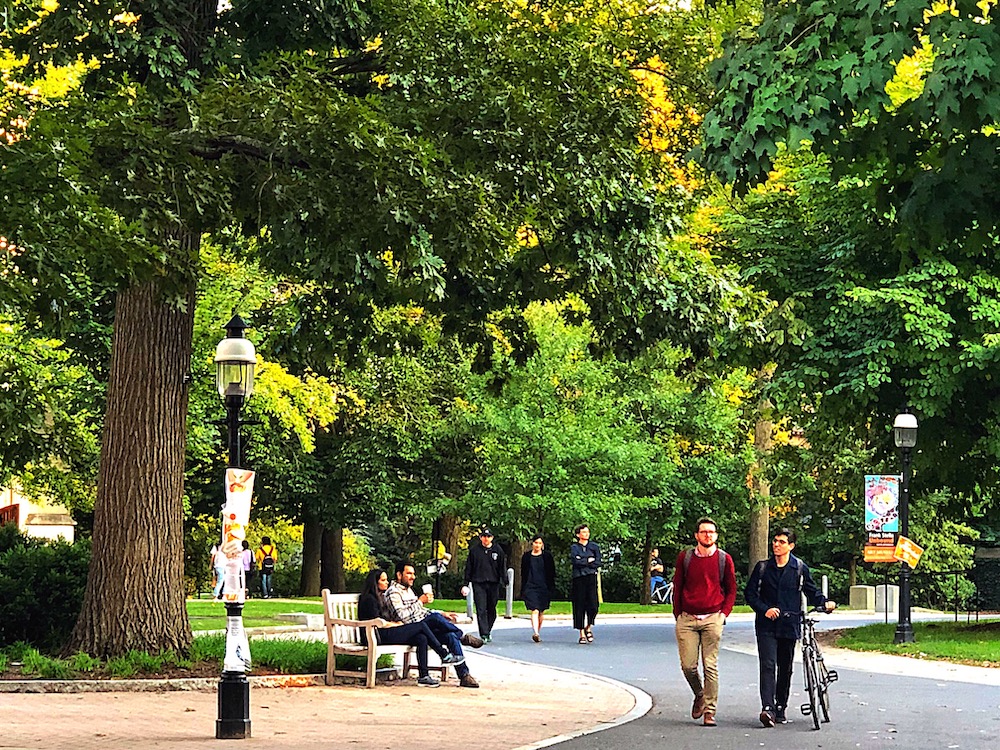College is an incredible journey, a four year commitment to an institution and what it stands for. Sometimes, however, students don’t fit into a school as well as they had hoped. Maybe the classes are too easy, maybe they don’t fit into the culture, maybe the school is too large, or too small, or simply not the experience they had hoped.
These students may feel trapped; they got into college, and now they’re stuck in a place where they aren’t comfortable for four years. This is not the case; while it is not necessarily easy to transfer between colleges, it is far from impossible. There is no reason for you to stay at a college if it is no longer properly serving your needs.
In this guide, we will explain how to determine if transferring is right for you, what transferring colleges looks like, what colleges look for in transfer students, and finally answer some common questions. This is a general guide to the process; if you want more information about transferring into a specific school, then check out our university guides, which describe each school’s specific requirements for transfer applicants.

The first thing to determine is, of course, whether or not transferring colleges is the right choice for you. It often takes a few months to settle into a new school, but sometimes a student and a school just don’t mesh well. In these cases, changing to a different school may be the best option.
Here’s a list of good reasons to transfer colleges:
Of course, this is not a comprehensive list, merely some of the most commonly cited reasons students decide to transfer. Generally, you should transfer if you think another school would better serve you academic or personal needs than the institution you currently attend.
Admissions rates for transfer students are, on average, within 3% of those for incoming freshmen. This can vary greatly by school of course, but the schools that are hard to get into as freshmen are also hard to get into as transfer students, generally speaking.
While the number of transfer students applying is generally much smaller, they are also competing for a far smaller number of seats overall, and this number can vary from year to year, depending on how many students a university has had transfer or drop out. Admissions rates for transfer students are often more volatile than those for freshmen.
While the exact required materials will vary greatly by college, there are some commonalities. Most institutions will not require your high school grades, as performance in college is seen as a much better predictor of academic ability. This is a boon for students who did not perform as well as they would have liked in high school.
What schools will require are (generally) the following:
The exact requirements will vary some by school, but this is the general list you can expect to provide. If you know that transferring to another institution is your eventual goal, you should begin preparing as early as possible, by doing well in your classes, forming relationships with professors, and looking at where you want to transfer to.
Students can try to transfer after their first year in school, but many institutions require two full years of college before you can apply as a transfer student. Your own situation will likely change how and where you apply as a transfer student; wanting to start a major is less immediate than needing to find a school closer to home immediately.
Applications to transfer are usually due after regular applications, and decisions are released later as well. There is no real standardization of when applications are due, so you will have to check each school’s site carefully to make sure you send your applications in before they are due. There is also no real standardization for when you will hear back.
Not all course credits from one school will transfer over to another, and some universities have their own requirements for transfer students. Generally though, it’s good to finish as many core requirements and prerequisite courses as you can, so you will be able to focus on major classes when you transfer.
You should also make sure that all the credits you have taken will transfer; not all universities count classes the same when awarding credits, and not all schools calculate credits in the same way. Some schools will limit how many credits can be brought in generally by transfer students. This is something your college counselor can help you with.

What colleges want from transfer students is in many ways the same as what they want from regular students. They are looking for passionate students who have specialized in a single subject matter. In contrast to regular admissions however, they are looking for students who are more future and career focused.
Students coming into undergrad straight from high school are more of a blank slate, when transferring in you have only a few years left to develop into the person you will become. Thus, a student with a more certain path forward will be more appealing to admissions officers. This is why transferring to pursue a specific major is often a reason, as admissions officers understand that motivation.
If you are transferring to pursue a major, however, you should show that you have tried to involve yourself in that field while at your university. This may include taking prerequisite courses, involving yourself in student organizations, doing research, or working with professors interested in the topic. If there are no professors at your school who are involved in a certain topic, then reaching out to professors at other schools to collaborate with is suggested. This is especially the case if the professors you collaborate with are at the school you are trying to transfer to.
It is ok if you are not totally career oriented, but you should show a trend toward specialization and focus in your studies. All colleges want students who are specialized, and since you’ve had a few years to study already, you should show your increased specialization over a high school student.
Almost all transfer programs will ask for supplemental essays, which is a major difference from standard admissions, where only a few schools ask for supplements. This is because colleges have somewhat higher expectations for students who have already taken college classes, and want to see how you are at organizing and presenting your thoughts.
This is in addition to the Common App essay, which asks why you want to leave your current institution, and what you hope to achieve by doing so. This is sensible; you are recommitting to a school, and they want to be sure you won’t just transfer out again. Therefore the reason behind your desire to transfer out is important, as is your reasoning for transferring into the new institution.
There is no single “right” answer to this question, just as there aren’t “right” answers to any other essay questions. When you answer the essay, however, you should try to portray your true self in the best possible light. Don’t be too harsh on the school you are leaving; merely state your problems in a clear manner. You can be a poor fit for an institution without either party being to blame; some fits just don’t work out.
Applying as a transfer student isn’t that much different from applying as a freshmen, but the process has its own quirks and peculiarities. As you have already taken some college-level courses, admissions officers will have higher expectations for your writing ability, academic focus, and plans for the future.
If you are concerned about your own transfer application, or are unsure about which school would be best for you to transfer to, you should schedule a free consultation. While our main focus is on helping high school students, we are more than happy to help you achieve your collegiate dreams.

Ivy Scholars is the leading educational consultant in Sugar Land, Texas, providing admissions coaching, test prep, and more to help students enroll at top tier schools.

Call us now: +1 (281) 215-5148
.
Get expert tips, admissions updates, and resources delivered straight to your inbox.


